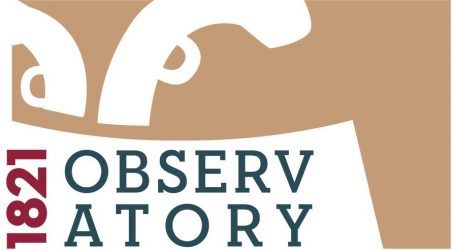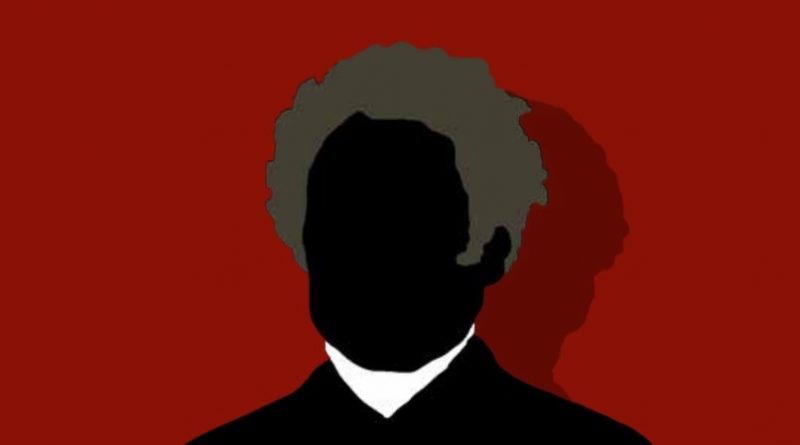Solomos…remastered
Dionysios Solomos was one of the most distinguished personalities who acted during the first years of the Greek Revolution, linking his name to the struggle of our ancestors for the recovery of freedom and national independence. Perhaps his most important work, “Hymn to Liberty”, was what made him known first in revolutionary Greece and then in Europe, giving him the title of “National poet of the Greeks”. His poems are to this day an inexhaustible source of inspiration for many people of the arts, writers, musicians, directors and visual artists. Dozens of literary texts, musical compositions, plays, museum exhibitions and visual interventions were the result of this impact of the Heptanese School and its main exponent, Dionysios Solomos, on modern Greek cultural expression.
As much of the artistic and literary world has been influenced by Solomos work, this influence culminated in the year of the 200th anniversary of the start of the Greek Revolution. From the time of the planning of the celebratory events and due to the inseparable relationship of Dionysios Solomos with the National Uprising, it was obvious that many actions would be related to him and his work. This expectation was greatly exceeded as, in addition to individual events, there were also entire cycles of activities with a fairly broad artistic content. Naturally, for both symbolic and practical reasons, the focus of the above was the island of Zakynthos and more specifically the Museum of Solomos and prominent Zakynthians. However, the action of corresponding institutions was equally active both in the large urban centers and in the rest of Greece.
The set of performance events includes theater performances, musical events, opera performances, poetry recitals and performances. The creation of a documentary about the life and work of Dionysios Solomos stands out in particular, which could be shown both on television and via the Internet. Although the primary material of the core of the events comes from the beginning of the 19th century, its expression is fully harmonized with modern cultural facts, causing great interest to the audience.
The prominent position held by the “Free besieged” in the body of the Solomos work seems to have had an impact on the theatrical productions that adopted this theme. The difficult moments of the siege of Messolonghi through the eyes of the defenders were shown through four different performances under the title “Free besieged”. The shows were created by different contributors, both public and private, and presented in different cities of Greece. Regarding the size of the audience, the performance of the National Theater stands out, since with the help of technology it was possible to watch it from online platforms. Of particular importance, however, was the show presented by the “2023, Elefsina-Cultural Capital of Europe” committee, in which some of the actors were residents of the Elefsina area. The creators of the show sought to highlight “the conversation between the past and the present, the reinterpretation of the historical events that marked the course of the modern Greek state, the relationship between those who were besieged and the present of a modern city with a long history”. The theme of the rest of the plays is based on (and takes its name from) other titles by Solomos: “Woman of Zakythos”, “The Dialogue”, “Lampros”, “The Cretan”, “Hymn to Liberty”. Finally, the Municipal Regional Theatre of Kavala stood out with a new performance entitled “No one ever learned…”, which is an original narrative of the events that followed the death of Solomos and also of the assumptions regarding the loss of part of the poet’s unpublished work.
Within this festive framework, a large number of artists from all over Greece performed musical events inspired by the poetic work of the national poet. Excerpts of his poems were either simply recited to the accompaniment of music or fully set to music creating a complex spectacle. Such actions took place in various cities of Greece while some toured more than one places and/or were broadcast via the internet. A typical case is the performance “Cantata of Freedom” by Christos Leontis, which throughout the period of the celebration not only toured Greece, but also updated the participating artists. Among the set of musical events, the collaboration of the composer Nikos Xydakis and the poet Dionysis Kapsalis, “Martha: A story from Messolonghi”, stands out. This performance by the Greek National Opera is original in terms of the presentation of the episodes of the siege of Messolonghi by approaching the psyche of the rebellious sacrificial women of Messolonghi through a music-theatrical language that multimodally combines the tools of poetry, music and storytelling.
Finally, it should be mentioned the great participation of the Municipal Regional Theatre of Kavala with an extensive set of artistic activities through the 64th Philippi Festival which was dedicated to the work of Dionysios Solomos with the title “D. Solomos: Hymn to Liberty”. The artistic director, Thodoris Gonis, together with his team of collaborators and the assistance of representatives of the academic community, combined in the most absolute way the poetic work of Solomos with the theatrical narration of history. Greek and foreign scholars, directors, actors, dancers, musicians, writers, filmmakers, photographers, created performances, concerts, speeches and actions on the work of the Zakynthian poet. The result of the above partnership was the creation and presentation of four theatrical performances (one of which we have already mentioned), two musical events, two performances, three poetic recitations and a documentary which was also screened in the context of the festival.
The identification of Dionysios Solomos and his work with the Greek Revolution and the first years of the newly formed state was impossible not to form an important part of the bicentennial since its inception. The creativity of the artistic world caused a great response from the Greek public, who filled the theatres, concerts and other entertainment venues, paying homage with their applause and admiration to the work of the “National Poet of the Greeks”.
Cover photo from the 64th Philippi Festival.
Periclis Chrysafakoglou, PhD candidate at the Department of History and Ethnology, Democritus University of Thrace

